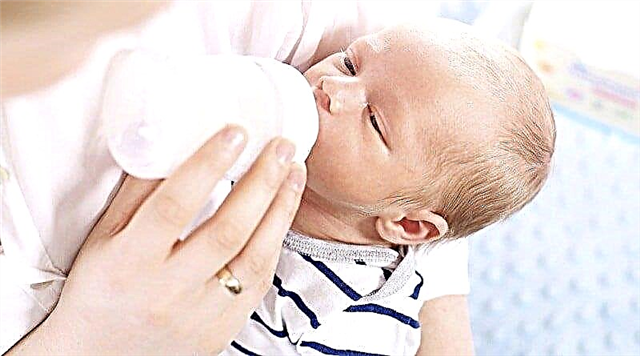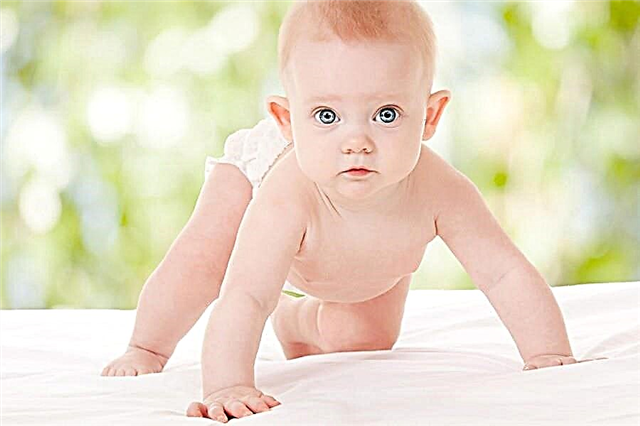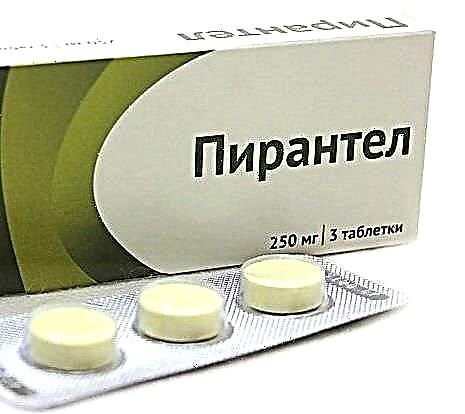Newborn babies sleep sweetly almost all the time. They rest up to 20 hours a day. Young parents are always worried if they notice changes in their child's behavior, such as flinching or throwing up their hands. These symptoms are common in babies during their first month of life and are usually not cause for concern. It is better to know why this is happening in order to allay fears and sleep well.

Newborn
Can a newborn flinch in a dream
It happens that newborn babies flinch in their sleep. Usually this is not dangerous and is not an alarming symptom, if this does not happen during wakefulness. Also, do not worry when twitching does not look like an attack, that is, sudden movements do not continue for several minutes. You need to closely observe the baby during the day. If tremors appear, the temperature rises, then it is worth calling a doctor.
Why does a newborn flinch in a dream
A startle in an infant in a dream can be caused by several reasons:
- Overexcitement. The crumb received too many emotions in a day, it doesn't matter if positive or negative predominate, the baby needs to digest and process them. Children, like adults, worry about the events they have experienced. The nervous system cannot cope with a large flow of impressions, which leads to flinching;
- Harsh sounds or extraneous noise. There is no need to tiptoe around the newborn and talk in a whisper. The child does not respond to monotonous sounds. The timbre of his parents' voices, which is familiar to him, will not interfere with a restful sleep. The creak of a door, a barking dog or a loud bang can scare him, and the baby will shudder;
- The discomfort. The baby may be uncomfortable in bed, or are wearing prickly clothes that are out of size. Perhaps the room is too hot, or the baby, on the contrary, is cold if his bed is in a draft;
- Colic. Unpleasant sensations in the abdomen can lead to movements in a dream. Increased gas formation causes not only flinching, the baby can wake up and cry. At the same time, his stomach is hard, inflated, he twists his legs, it is quite difficult to calm him down;
- Urination and defecation.
The newborn is mainly in the rapid phase of sleep, which is responsible precisely for the assimilation of new knowledge and impressions. He sleeps superficially most of the time, so he can flinch and move. Also, movements can occur during the transition to the deep phase. At this moment, the baby wakes up and, if everything suits him, he is warm and comfortable, continues to rest quietly.

The baby sleeps sweetly
The main thing to pay attention to is the child's body temperature. If it is normal and the baby flinched a couple of times, there is usually no cause for concern. When it rises and has already exceeded 38 degrees, then you need to immediately knock it down and call a doctor. These twitching can be the onset of febrile seizures. In some children, they accompany infectious diseases, one of the symptoms of which is high fever. They can also begin with teething, heatstroke and even metabolic disorders. Children with a similar reaction to an increase in body temperature usually need to knock it down, starting at 37.5. It is better to consult a neurologist to rule out the development of pathology.
Note! More often than not, seizures caused by fever go away over time, children outgrow and stop twitching.
A child can start as a result of the Moro reflex. At the same time, he spreads the handles to the sides. It seems to a newborn that he is falling, so he reflexively tries to hold on, maintain balance or grab onto something. Such a reaction to loud sounds, pops will disappear over time, there is no need to be afraid of it. It is worth contacting a neurologist if the reflex persists in infants after 5 months.
Pathological causes of flinching during sleep
If a newborn shudders in a dream and at the same time wakes up in tears every night, then you should pay attention to this. In this case, a consultation with a neurologist will not hurt.
Twitching may appear against the background of rickets. It develops when there is a lack of vitamin D and calcium. In this case, the child has a sour smell of sweat, and the head may be flattened. Treatment should be carried out under the supervision of a doctor, who, after examination, will determine if there is a pathology.
Note! Usually, infants are prescribed vitamin D, but you do not need to exceed the dosage yourself. An excess of it is much more dangerous than a lack.
If a child begins to flinch in a dream at a temperature, he trembles, and his forehead is covered with sweat, you need to immediately call an ambulance. While the doctors are traveling, parents should do everything so that the child does not choke. It is better to put the baby on its side, so it will not choke, for example, in case of vomiting. You do not need to hold the baby by force, the main thing is to be close to him. Usually, the doctor examines the baby and injects a lytic mixture.
Doctors need help if the newborn fell or hit his head hard before twitching. To rule out injury, it is better to get tested.
Remember! After such incidents, the child should not be allowed to sleep. It is worth playing it safe and visiting a doctor, especially when the baby starts to vomit.
Correct actions of parents
If the child flinches during sleep, parents should rule out neurological diseases. When the doctor says that there is nothing to be afraid of, then you should not focus on this. It is necessary to take care of a comfortable environment at home so that the baby feels safe, feels the love and care of the parents.
Some babies sleep well when swaddled. They do not scare themselves with their own movements and constantly feel warmth. This reminds them of the time before birth, so babies sleep more peacefully.

Baby in a diaper
Note! There are special cocoons in which the baby is as comfortable as possible. It is in a natural position, because the soft bed repeats the anatomical features of the newborn.
If the baby shudders, do not wake him up and take him on the arms. A child, on the other hand, may get scared and start crying. Better to sit next to him, pat on the back, head, sing a lullaby. If the baby is healthy, he will hear a familiar voice, feel warm and continue to sleep.
Preventing the startle of a child in a dream
So that the child does not flinch, you need to take care of comfortable conditions:
- Be sure to ventilate the room before going to bed;
- Carry out wet cleaning every day, destroy dust in a timely manner;
- Ensure that the temperature is between 18 and 22 degrees;
- Do not wrap up the baby, remember that overheating is much more dangerous than freezing. It is important to use only natural materials, this applies to clothing and bedding. They should be soft and comfortable for the baby;
- Do not overload the baby with emotions, especially in the afternoon, before going to bed. It is better to plan a visit to unfamiliar places and new acquaintances in the morning;
- Use bedtime rituals to create a familiar and calming environment for the child. For example, take a bath every day, then change into pajamas to a calm melody and go to bed listening to Mom's singing or a fairy tale.
The care, attention of parents and a healthy relationship between them will only strengthen the nervous system of the newborn. When the parents are satisfied and happy, the baby adopts their mood, emotions and sleeps sweetly, soundly.

Friendly family
If the newborn suddenly distorts in a dream, you do not need to panic right away. This is not a symptom of the disease in the absence of other manifestations. Especially do not worry if nothing bothers the baby during the daytime, and he feels great. Even if the child cringes when the temperature rises, it is most likely temporary. With age, when the baby gets stronger, the unpleasant symptom will disappear.



